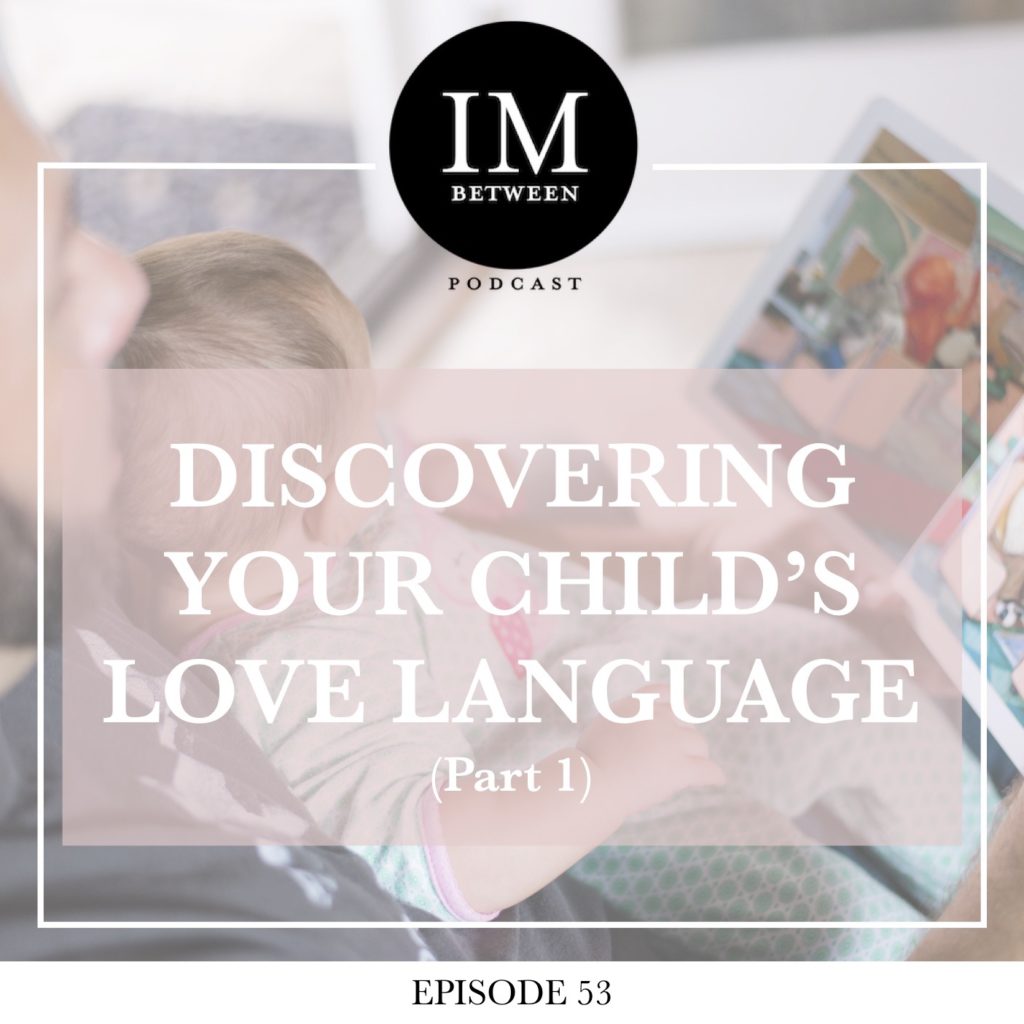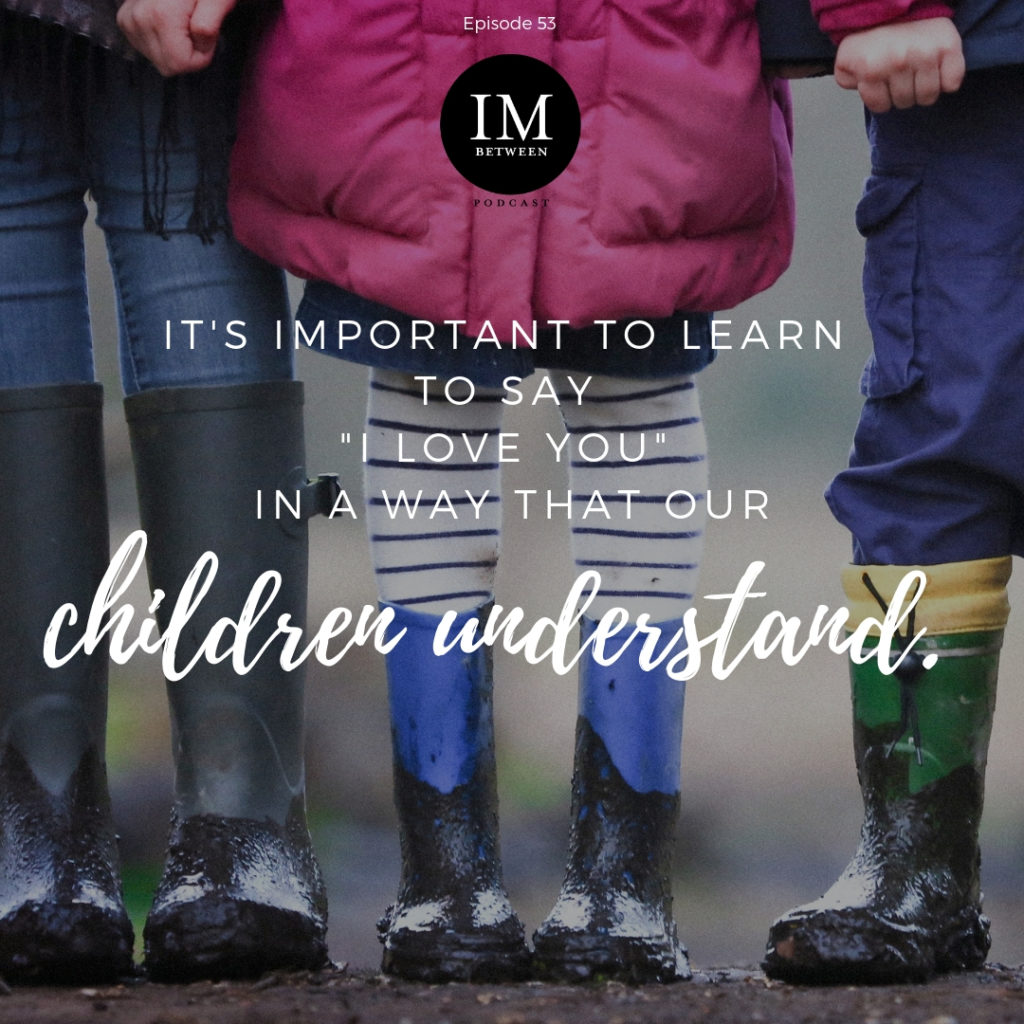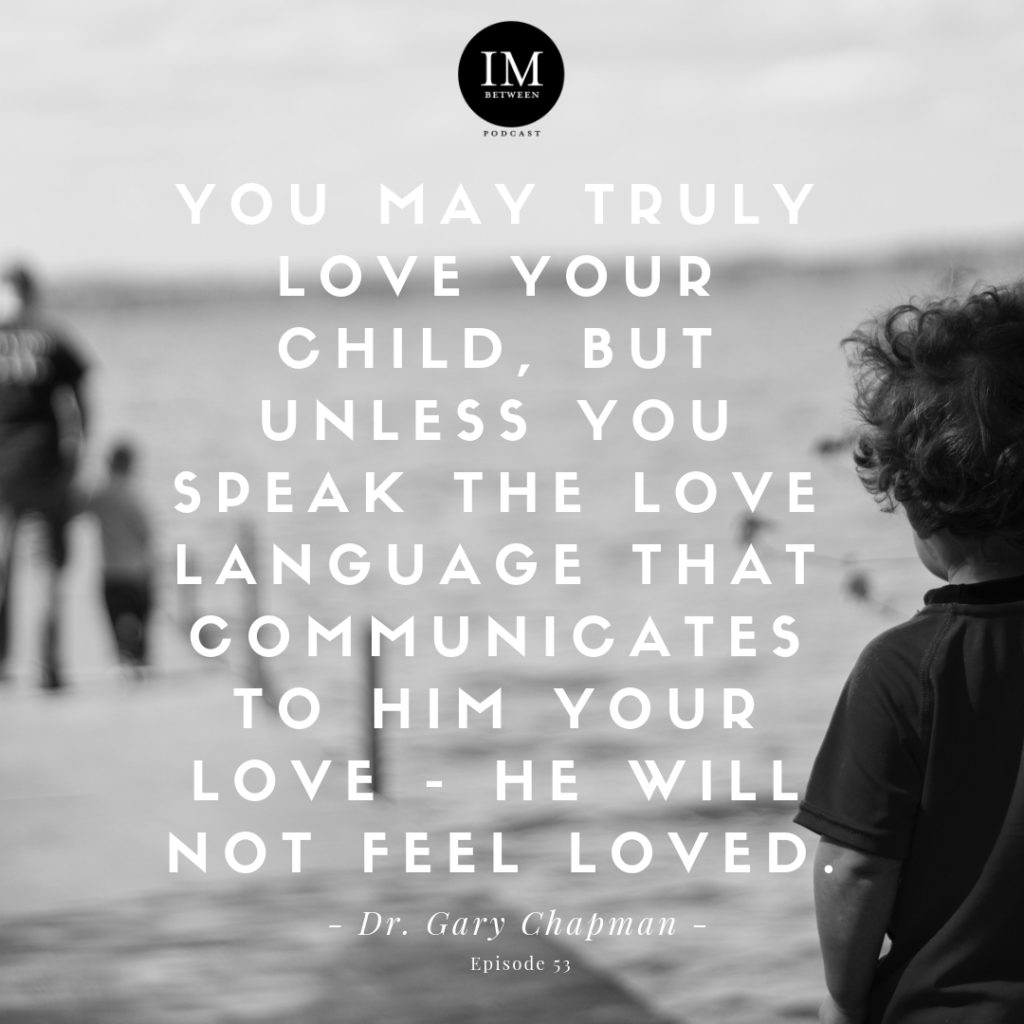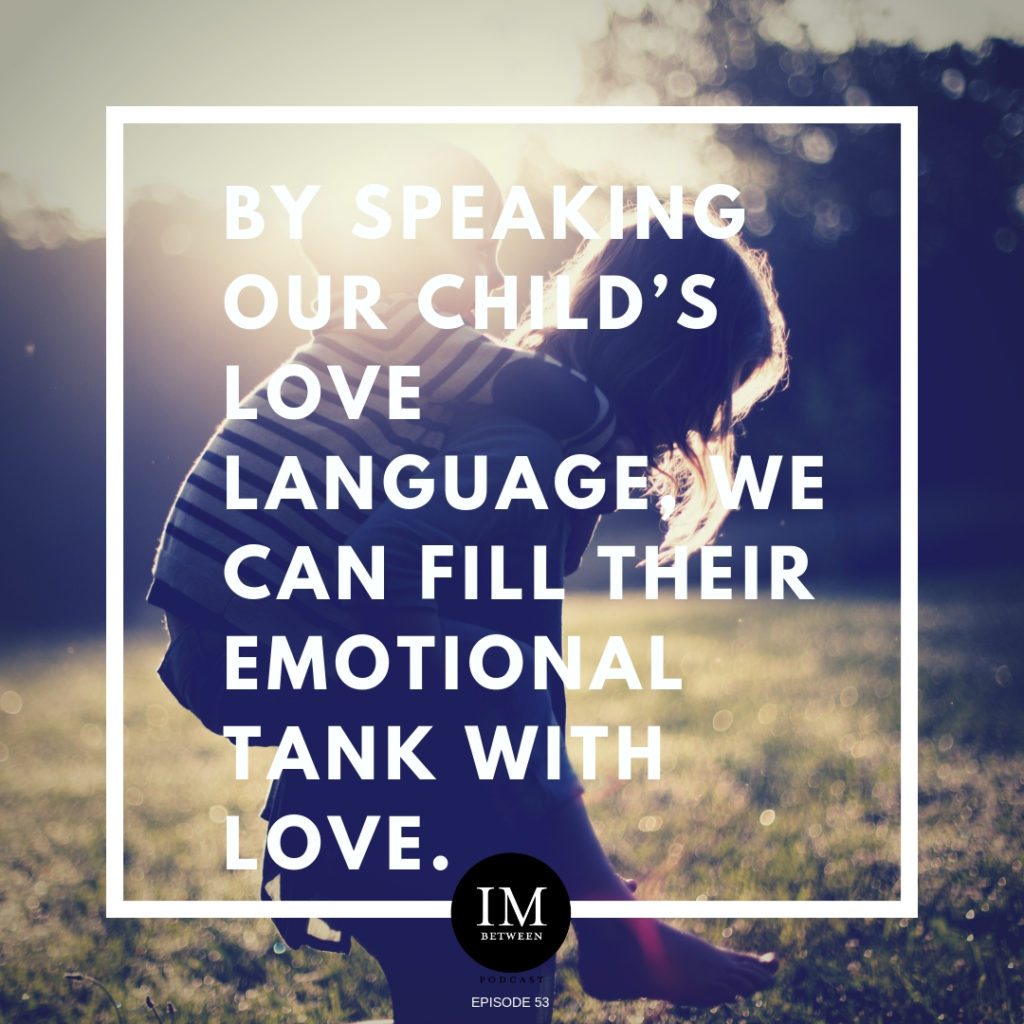In Episode 53 of The IMbetween Podcast, Daniel and Christina Im discuss what love languages are, why it is important to know your child’s love language, and describe the first three love languages – physical touch, words of affirmation, and quality time. Make sure you don’t miss part 2 of Discovering Your Child’s Love Language as well.
In This Episode, You Will Hear About:
- What the 5 love languages are
- Why it is important to know your child’s love language
- How to fill your child’s emotional love tank from infancy through launching them into their college years
- Out-of-the-box ideas of how to demonstrate each love language to our children
Resources Mentioned During the Episode:
- Listen to our part 2 episode of Discovering Your Child’s Love Language
- The Five Love Languages by Dr. Gary Chapman
- The Five Love Languages of Children by Dr. Gary Chapman and Dr. Ross Campbell
- The Five Love Languages quiz for children
- Check out Episode 50: The Year of Grace and Gratitude to hear why it is important to show ourselves, our spouse, and our children grace
- Listen to Episode 20: How to Raise an Adult (An Interview with Drew Moser)
- Take a look at Love Does for Kids by Bob Goff – this is the book Christina is reading to our kids during snack time
Quotables:
- “It’s important to learn how to say “I love you” in a way that our children can understand.”
- “Only the child who feels genuinely loved and cared for can do her best. You may truly love your child, but unless she feels it – unless you speak the love language that communicates to her your love – she will not feel loved.” – Dr. Gary Chapman
- “By speaking our child’s love language, we can fill their emotional tank with love. The emotional tank is a place of emotional strength that can fuel him through challenging moments and days that childhood, and especially teen years, brings. Just like a car, the tank empties and needs to be constantly filled.” – Dr. Gary Chapman
- “One of the marks of a mature adult is the ability to give and receive appreciation through all love languages – physical touch, quality time, words of affirmation, gifts, and acts of service.”
- “The words “I love you” should never be diluted with conditional statements or requests.”
- “Quality time is a parent’s gift of presence to a child. It conveys the message, “You are important. I like being with you.” It can make your child feel like the most important person in the world.” – Dr. Gary Chapmam
- “A tender hug will communicate love to any child, but it shouts love to the children with the primary love language as physical touch.”
- “Some children feel their greatest sense of love in expressions that affirm them.”
Subscribe and Connect With Us:
- Apple Podcasts
- Stitcher
- Google Play
- Spotify
- Instagram – @imbetweenshow
- Twitter – @imbetweenshow
- Facebook – @imbetweenshow




